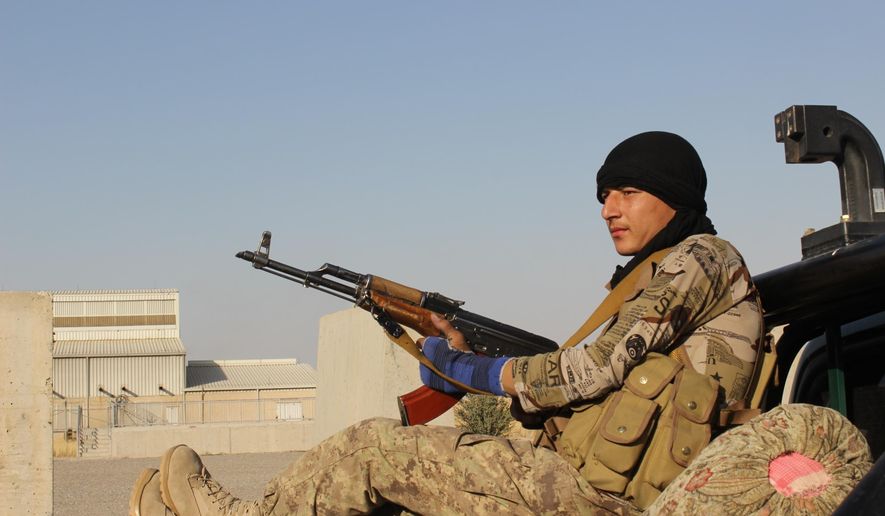Two Middle East rivals still engaged in a diplomatic cold war are slated to become the newest members of the U.S. and NATO-led coalition in Afghanistan.
Ground troops from Qatar and the United Arab Emirates will join the multi-nation coalition training and advising Afghan forces in the longest conflict in U.S. history, a senior administration official tells The Washington Times.
The first-ever deployment of Qatari and Emirati ground troops to southwest Asia will be part of an overall increase of international forces to Afghanistan, as part of the NATO-led military advisory mission dubbed Operation Resolute Support, the official said.
Alliance members will formally approve the inclusion of Doha and Abu Dhabi into the coalition forces patchwork during next week’s NATO ministerial in Brussels, the official said on the condition of anonymity, in order to discuss the effort. The official declined to provide details as to how many ground forces Qatar or UAE would contribute to the Afghan effort, what their anticipated mission would be or what the proposed increase in NATO troops in Afghanistan would be in total.
Qatari cargo aircraft had been flying resupply missions into and out of Afghanistan, in support of U.S. and NATO forces since January, “providing logistical support to the NATO counterterrorism campaign” Defense Secretary James Mattis said during the inaugural U.S.-Qatar Strategic Dialogue held in Washington that month. But the upcoming deployment of Qatari forces in Afghanistan will be the first time those troops will be on the ground.
The decision comes on the heels of the unprecedented cease-fire between Taliban and Afghan government forces, which began on June 11 and coincided with the Muslim holy month of Ramadan. The ceasefire was extended by Afghan President Ashraf Ghani in late June.
While Taliban leaders have vehemently objected to the 10-day extension, U.S. and coalition forces continue to abide by Kabul’s orders, making the cease-fire the longest of its kind in Afghanistan.
U.S. and coalition forces in Afghanistan have not carried out a single airstrike against Taliban targets for over two weeks, in observance of the cease-fire. U.S. and NATO forces continue to monitor Taliban activity in the country through intelligence and surveillance operations, and retain the right to execute airstrikes against the insurgents in self-defense.
But the inclusion of both Arab nations into the American and alliance coalition in Afghanistan comes amid a continuing diplomatic face-off between Qatar, Saudi Arabia and its Gulf allies — including the UAE.
Last year, Riyadh and its regional allies severed all economic and diplomatic ties with Qatar, over accusations Doha continued to provide material support for terror groups across the globe. The Saudi alliance quickly moved to seal off airspace and sea lanes around Qatar to international traffic, putting an economic and political stranglehold on the small, oil-rich nation.
On Thursday, Bahrain, UAE and Egypt — all members of the Saudi coalition —requested the United Nation’s International Court of Justice reverse an earlier U.N. decision that the blockade of Qatari airspace violated international law. The International Civil Aviation Organization ruled last week that the airspace blockade violated international norms governing commercial aircraft traversing foreign airspace, AFP reported.
• Carlo Muñoz can be reached at cmunoz@washingtontimes.com.




Please read our comment policy before commenting.